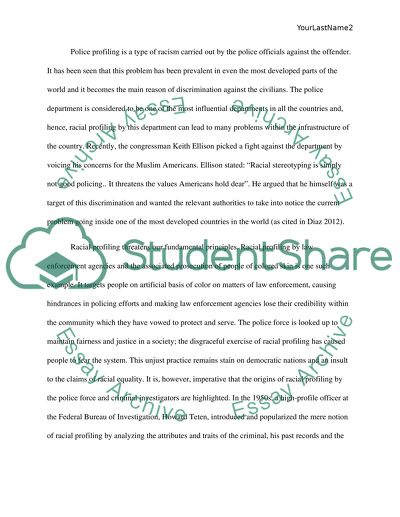Cite this document
(“Racial Profiling by the Police Research Paper Example | Topics and Well Written Essays - 2000 words”, n.d.)
Retrieved from https://studentshare.org/english/1448979-police-racial-profiling
Retrieved from https://studentshare.org/english/1448979-police-racial-profiling
(Racial Profiling by the Police Research Paper Example | Topics and Well Written Essays - 2000 Words)
https://studentshare.org/english/1448979-police-racial-profiling.
https://studentshare.org/english/1448979-police-racial-profiling.
“Racial Profiling by the Police Research Paper Example | Topics and Well Written Essays - 2000 Words”, n.d. https://studentshare.org/english/1448979-police-racial-profiling.


